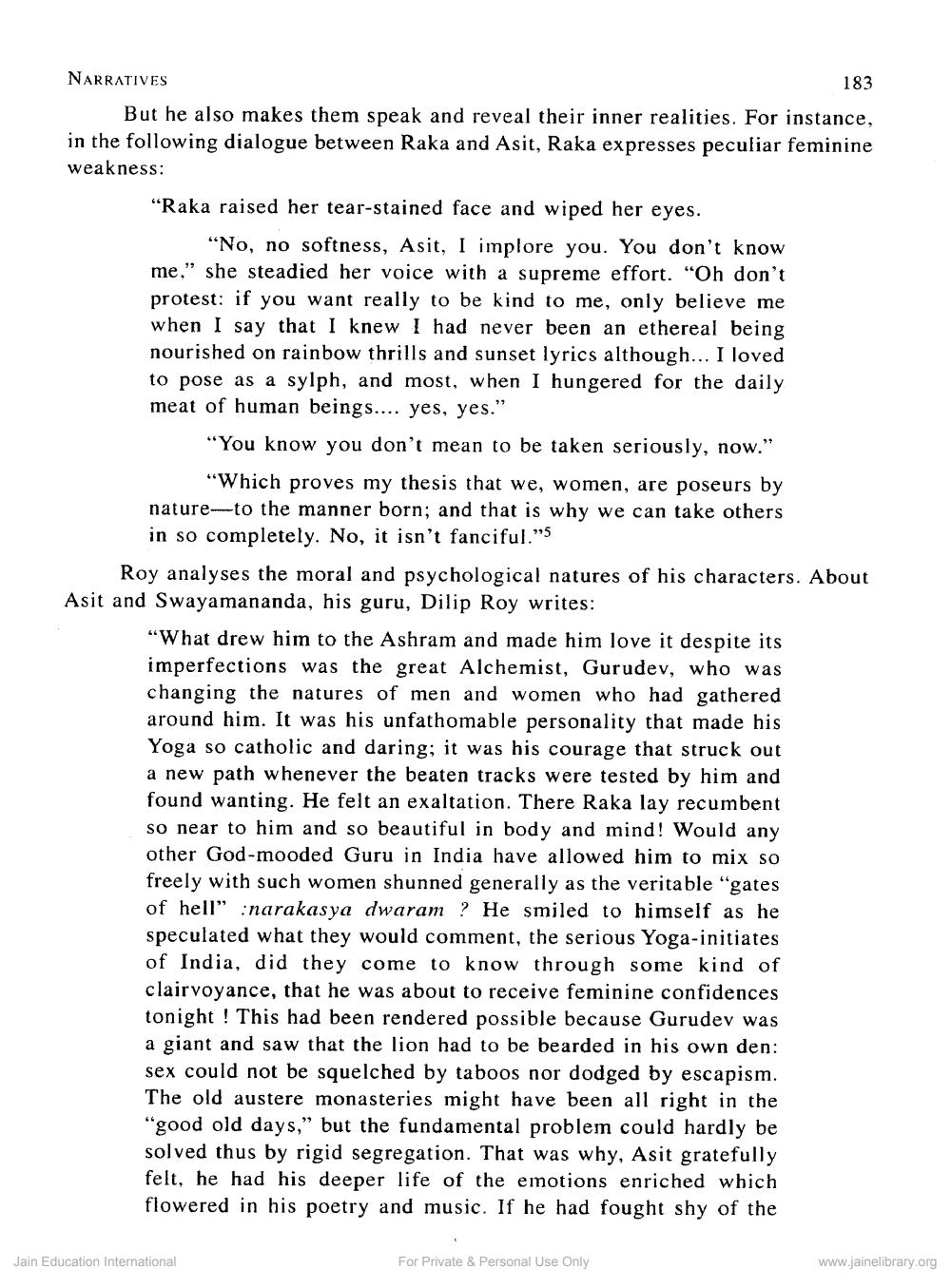________________
183
NARRATIVES
But he also makes them speak and reveal their inner realities. For instance, in the following dialogue between Raka and Asit, Raka expresses peculiar feminine weakness:
"Raka raised her tear-stained face and wiped her eyes.
“No, no softness, Asit, I implore you. You don't know me," she steadied her voice with a supreme effort. "Oh don't protest: if you want really to be kind to me, only believe me when I say that I knew I had never been an ethereal being nourished on rainbow thrills and sunset lyrics although... I loved to pose as a sylph, and most, when I hungered for the daily meat of human beings.... yes, yes."
"You know you don't mean to be taken seriously, now."
“Which proves my thesis that we, women, are poseurs by nature-to the manner born; and that is why we can take others
in so completely. No, it isn't fanciful."S
Roy analyses the moral and psychological natures of his characters. About Asit and Swayamananda, his guru, Dilip Roy writes:
"What drew him to the Ashram and made him love it despite its imperfections was the great Alchemist, Gurudev, who was changing the natures of men and women who had gathered around him. It was his unfathomable personality that made his Yoga so catholic and daring; it was his courage that struck out a new path whenever the beaten tracks were tested by him and found wanting. He felt an exaltation. There Raka lay recumbent so near to him and so beautiful in body and mind! Would any other God-mooded Guru in India have allowed him to mix so freely with such women shunned generally as the veritable "gates of hell” narakasya dwaram ? He smiled to himself as he speculated what they would comment, the serious Yoga-initiates of India, did they come to know through some kind of clairvoyance, that he was about to receive feminine confidences tonight! This had been rendered possible because Gurudev was a giant and saw that the lion had to be bearded in his own den: sex could not be squelched by taboos nor dodged by escapism. The old austere monasteries might have been all right in the "good old days," but the fundamental problem could hardly be solved thus by rigid segregation. That was why, Asit gratefully felt, he had his deeper life of the emotions enriched which flowered in his poetry and music. If he had fought shy of the
Jain Education International
For Private & Personal Use Only
www.jainelibrary.org




